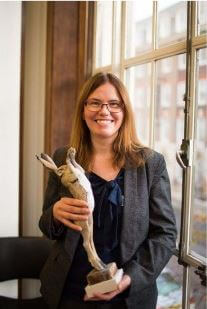Despite their availability, non-animal tests may not be accepted to fulfil regulatory requirements. There are several reasons for this, including a lack of regulatory or industry familiarity with the non-animal tests. To overcome this challenge, PETA Science Consortium International organises training opportunities to help scientists become more proficient with in vitro and in silico methods.
Effective training reaches all sectors and management levels within an organisation and requires collaboration among regulatory agencies, industry, method developers, and NGOs to develop and promote educational opportunities and materials. Training must also take a variety of forms, including regular in-person and online events and up-to-date written and video materials.
Hands-On Training
The Science Consortium offers travel grants for researchers and regulators to attend in vitro training courses hosted by the European Commission Joint Research Centre, the European Society for Toxicology In Vitro, the Institute for In Vitro Sciences, and other organisations. For example, the Science Consortium sponsors training and travel for a hands-on in vitro toxicology training course hosted several times a year at the Institute for In Vitro Sciences. The Science Consortium also sponsors in silico trainings, for example, on the OECD QSAR Toolbox by the Laboratory of Mathematical Chemistry (see here for more information).
Workshops
The Science Consortium organises in-person, expert workshops on topics including non-animal testing approaches to assessing acute systemic toxicity, pulmonary fibrosis, or pyrogenicity of medical devices, and on the development of animal-free recombinant antibodies.
Webinars
The Science Consortium also organises webinars on inhalation toxicity testing, recombinant antibodies, the use of non-animal approaches to meet Registration, Evaluation, Authorisation and Restriction of Chemicals (REACH) requirements, and the use of new approach methodologies in risk assessment.
Written Materials
The Science Consortium produces factsheets on three-dimensional tissue models, computational methods, medical devices, and non-animal test methods for a variety of endpoints, such as eye irritation, skin irritation, and skin sensitisation.

For these and other efforts, the Science Consortium won the prestigious Lush Prize Training Award in 2015 for its multi-faceted approach to supporting non-animal testing through education and training.
